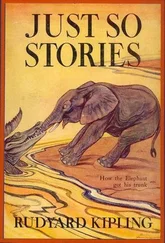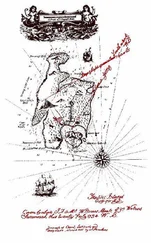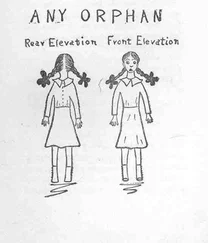Илья Франк - Английский язык с Э. Хемингуэем. Старик и море
Здесь есть возможность читать онлайн «Илья Франк - Английский язык с Э. Хемингуэем. Старик и море» весь текст электронной книги совершенно бесплатно (целиком полную версию без сокращений). В некоторых случаях можно слушать аудио, скачать через торрент в формате fb2 и присутствует краткое содержание. Жанр: Языкознание, на русском языке. Описание произведения, (предисловие) а так же отзывы посетителей доступны на портале библиотеки ЛибКат.
- Название:Английский язык с Э. Хемингуэем. Старик и море
- Автор:
- Жанр:
- Год:неизвестен
- ISBN:нет данных
- Рейтинг книги:5 / 5. Голосов: 1
-
Избранное:Добавить в избранное
- Отзывы:
-
Ваша оценка:
- 100
- 1
- 2
- 3
- 4
- 5
Английский язык с Э. Хемингуэем. Старик и море: краткое содержание, описание и аннотация
Предлагаем к чтению аннотацию, описание, краткое содержание или предисловие (зависит от того, что написал сам автор книги «Английский язык с Э. Хемингуэем. Старик и море»). Если вы не нашли необходимую информацию о книге — напишите в комментариях, мы постараемся отыскать её.
Английский язык с Э. Хемингуэем. Старик и море — читать онлайн бесплатно полную книгу (весь текст) целиком
Ниже представлен текст книги, разбитый по страницам. Система сохранения места последней прочитанной страницы, позволяет с удобством читать онлайн бесплатно книгу «Английский язык с Э. Хемингуэем. Старик и море», без необходимости каждый раз заново искать на чём Вы остановились. Поставьте закладку, и сможете в любой момент перейти на страницу, на которой закончили чтение.
Интервал:
Закладка:
He had sailed for two hours (он плыл два часа), resting in the stern (отдыхая на корме) and sometimes chewing a bit of the meat from the marlin (и иногда съедая кусочек мяса марлиня), trying to rest and to be strong (пытаясь отдохнуть и набраться сил), when he saw the first of the two sharks (когда он увидел первую из двух акул).
juicy ['GHsI], stringiness ['strINInqs], hull [hAl]
He leaned over the side and pulled loose a piece of the meat of the fish where the shark had cut him. He chewed it and noted its quality and its good taste. It was firm and juicy, like meat, but it was not red. There was no stringiness in it and he knew that it would bring the highest price in the market. But there was no way to keep its scent out of the water and the old man knew that a very bad time was coming.
The breeze was steady. It had backed a little further into the north-east and he knew that meant that it would not fall off. The old man looked ahead of him but he could see no sails nor could he see the hull nor the smoke of any ship. There were only the flying fish that went up from his bow sailing away to either side and the yellow patches of Gulf weed. He could not even see a bird.
He had sailed for two hours, resting in the stern and sometimes chewing a bit of the meat from the marlin, trying to rest and to be strong, when he saw the first of the two sharks.
"Ay," he said aloud. There is no translation for this word (для этого слова нет перевода) and perhaps it is just a noise (и, возможно, это просто звук) such as a man might make, involuntarily (который может сделать человек непроизвольно; voluntarily — добровольно, естественно ), feeling the nail go through his hands and into the wood (чувствуя, как гвоздь проходит через руку и в дерево).
" Galanos ( /исп./ акула /особый вид акулы/)," he said aloud. He had seen the second fin now coming up behind the first (он увидел теперь и второй плавник, идущий позади первого) and had identified them as shovel-nosed sharks (он узнал в них широконосых акул; to identify — опознавать, идентифицировать; shovel — лопата; совок ) by the brown, triangular fin (по коричневым треугольным плавникам) and the sweeping movements of the tail (и по размашистым движениям хвоста). They had the scent (они учуяли запах) and were excited (и были возбуждены) and in the stupidity of their great hunger they were losing and finding the scent in their excitement (и, совсем одурев от голода: «в глупости своего великого голода», они то теряли, то находили вновь запах в своем возбуждении). But they were closing all the time (но они неумолимо: «все это время» приближались).
The old man made the sheet fast and jammed the tiller (старик закрепил парус и заклинил румпель; to jam — блокировать ). Then he took up the oar with the knife lashed to it (затем он взял весло с прикрепленным к нему ножом). He lifted it as lightly as he could because his hands rebelled at the pain (он поднял его совсем тихонько, потому что руки взбунтовались от боли; lightly — слегка, незначительно, чуть-чуть; to rebel — бунтовать, протестовать ). Then he opened and closed them on it lightly to loosen them (затем он слегка разжимал и сжимал пальцы, чтобы размять их). He closed them firmly so they would take the pain now (он сжал их крепко так, чтобы они почувствовали полную боль сейчас) and would not flinch (и не подвели; to flinch — вздрагивать /от боли, испуга/; уклоняться, отступать ) and watched the sharks come (и наблюдал, как приближаются акулы). He could see their wide, flattened, shovel-pointed heads now (теперь он видел их широкие, приплюснутые, похожие на лопаты: «оканчивающиеся как лопаты» головы) and their white tipped wide pectoral fins (и их большие спинные плавники с белым кончиком; tip — тонкий конец; кончик ). They were hateful sharks (это были отвратительные акулы), bad smelling (плохо пахнущие = вонючие), scavengers as well as killers (пожиратели падали, равно как и убийцы), and when they were hungry they would bite at an oar or the rudder of a boat (и когда они были голодны, они могли укусить как весло, так и руль лодки; rudder — руль ). It was these sharks that would cut the turtles' legs and flippers off (это были те акулы, которые откусывали ноги и ласты черепахам; flipper — плавник, ласты ) when the turtles were asleep on the surface (когда черепахи спали на поверхности), and they would hit a man in the water (и они нападали на человека), if they were hungry (если были голодны), even if the man had no smell of fish blood (даже если человек не пахнул ни кровью рыбы) nor of fish slime on him (ни рыбьей слизью: «не имел на себе ни запаха…»; slime — слизь ).
voluntarily ['vOlqntqrIlI], identify [aI'dentIfaI], jam [Gxm], flinch [flInC]
"Ay," he said aloud. There is no translation for this word and perhaps it is just a noise such as a man might make, involuntarily, feeling the nail go through his hands and into the wood.
"Galanos," he said aloud. He had seen the second fin now coming up behind the first and had identified them as shovel-nosed sharks by the brown, triangular fin and the sweeping movements of the tail. They had the scent and were excited and in the stupidity of their great hunger they were losing and finding the scent in their excitement. But they were closing all the time.
The old man made the sheet fast and jammed the tiller. Then he took up the oar with the knife lashed to it. He lifted it as lightly as he could because his hands rebelled at the pain. Then he opened and closed them on it lightly to loosen them. He closed them firmly so they would take the pain now and would not flinch and watched the sharks come. He could see their wide, flattened, shovel-pointed heads now and their white tipped wide pectoral fins. They were hateful sharks, bad smelling, scavengers as well as killers, and when they were hungry they would bite at an oar or the rudder of a boat. It was these sharks that would cut the turtles' legs and flippers off when the turtles were asleep on the surface, and they would hit a man in the water, if they were hungry, even if the man had no smell of fish blood nor of fish slime on him.
"Ay," the old man said. "Galanos. Come on galanos (плывите сюда, galanos)."
They came (и они приплыли). But they did not come as the Mako had come (но они приплыли не так, как приплыла мако). One turned and went out of sight under the skiff (одна перевернулась и ушла из поля зрения под лодку) and the old man could feel the skiff shake as he jerked and pulled on the fish (и старик мог чувствовать, как трясется лодка, когда она дергала и тянула рыбу). The other watched the old man with his slitted yellow eyes (другая смотрела на старика своими узкими желтыми глазами; slit — длинный узкий разрез, прорезь, щель; to slit — делать длинный узкий разрез ) and then came in fast (и затем быстро приблизилась) with his half circle of jaws wide (с широко разинутым полукружием пасти) to hit the fish where he had already been bitten (чтобы напасть на рыбу в том месте, где та уже была укушена). The line showed clearly on the top of his brown head (линия ясно показалась на макушке ее коричневой головы) and back where the brain joined the spinal cord (и уходила назад, где мозг соединялся с хребтом) and the old man drove the knife on the oar into the juncture (и старик вонзил нож на весле в перекрестье; juncture — место соединения ), withdrew it (вынул его), and drove it in again into the shark's yellow cat-like eyes (и снова вонзил в акулий желтый кошачий глаз). The shark let go of the fish and slid down (акула отпустила рыбу и заскользила вниз; to slide — скользить ), swallowing what he had taken as he died (проглатывая то, что взяла, в то время как умирала).
Читать дальшеИнтервал:
Закладка:
Похожие книги на «Английский язык с Э. Хемингуэем. Старик и море»
Представляем Вашему вниманию похожие книги на «Английский язык с Э. Хемингуэем. Старик и море» списком для выбора. Мы отобрали схожую по названию и смыслу литературу в надежде предоставить читателям больше вариантов отыскать новые, интересные, ещё непрочитанные произведения.
Обсуждение, отзывы о книге «Английский язык с Э. Хемингуэем. Старик и море» и просто собственные мнения читателей. Оставьте ваши комментарии, напишите, что Вы думаете о произведении, его смысле или главных героях. Укажите что конкретно понравилось, а что нет, и почему Вы так считаете.



